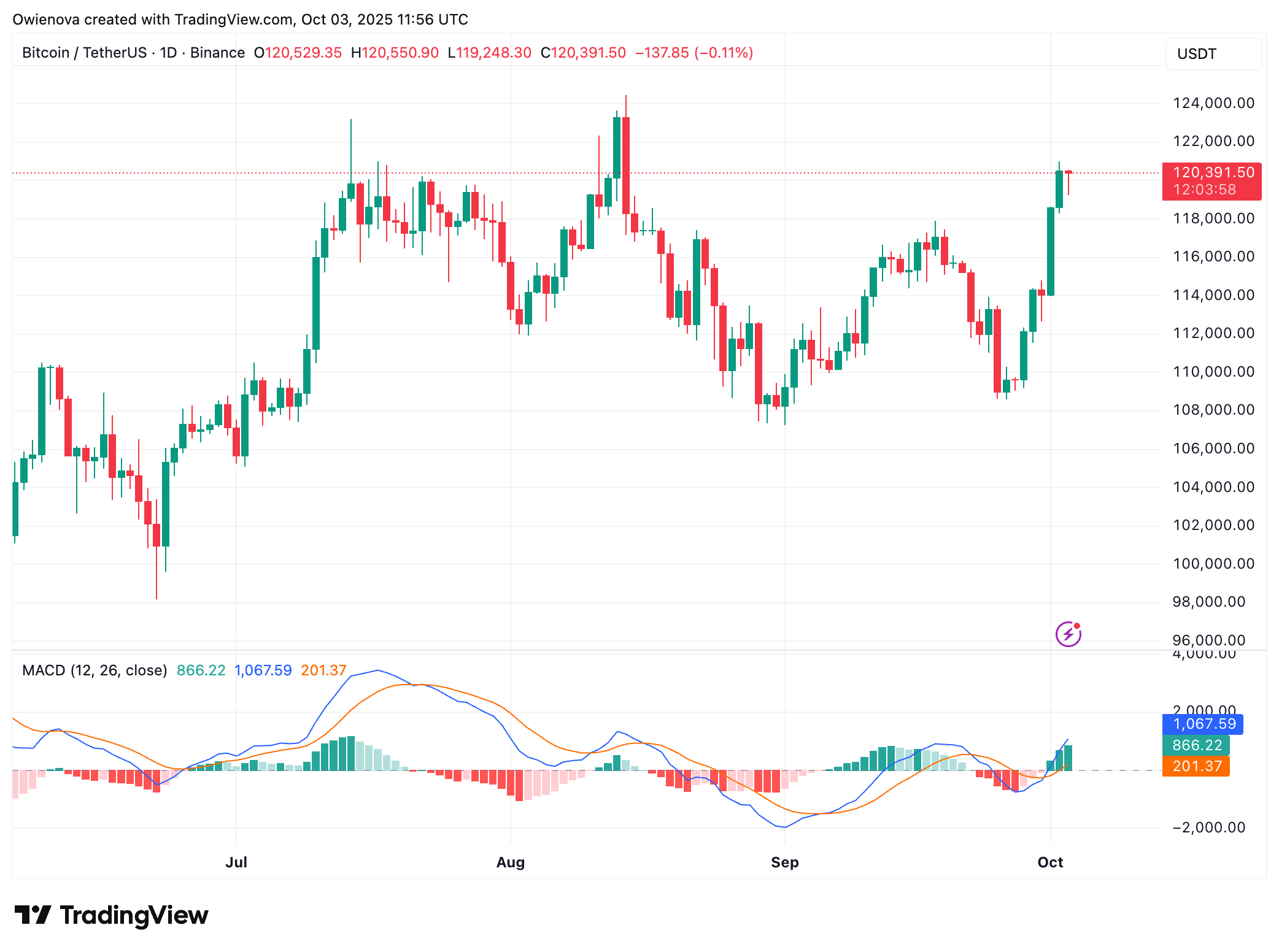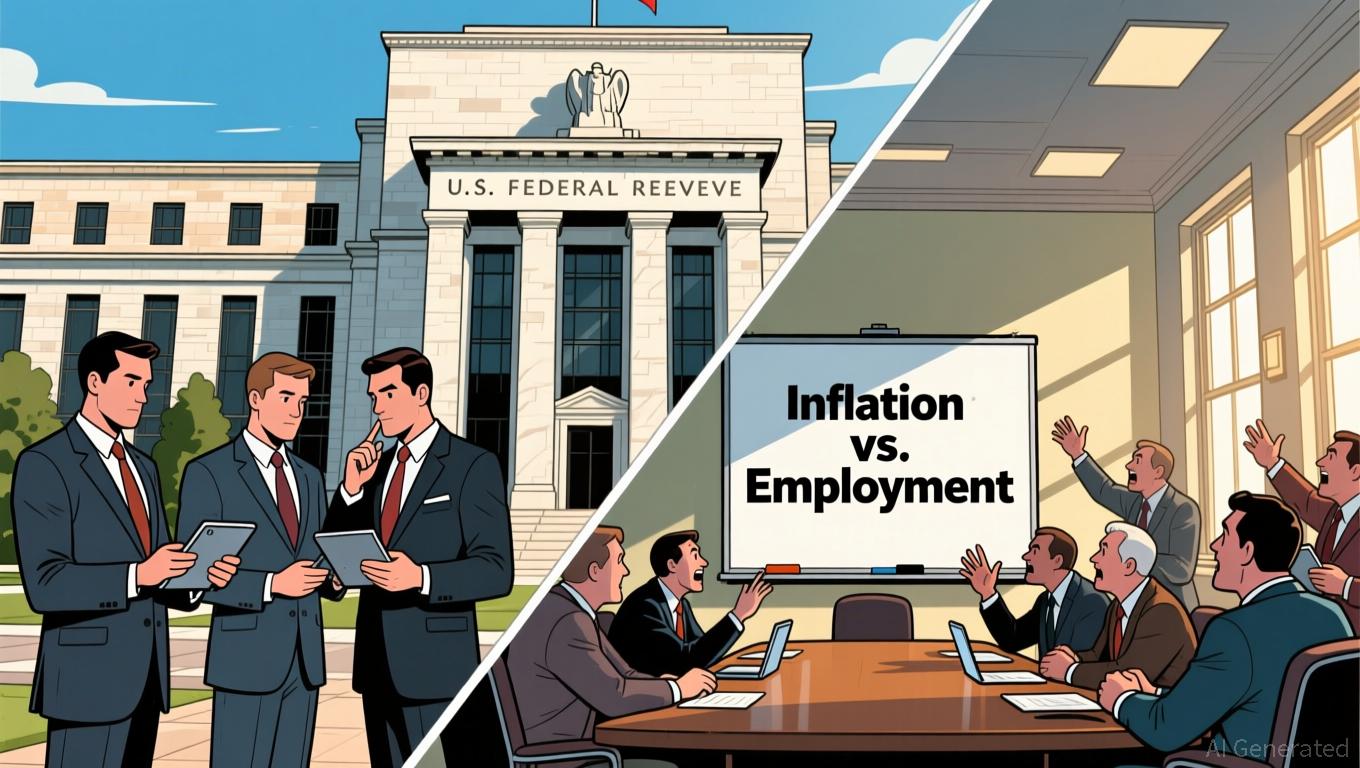Bitcoin Capital Flow Must Enter The Network Before Global Dominance — Here’s What Will Happen
The vision of Bitcoin absorbing the world’s entire capital float is a compelling narrative, yet it runs headlong into a significant technical constraint. Bitcoin will not realize this massive potential unless mechanisms are created to move and utilize capital directly on its network.
Why Bitcoin Can’t Absorb Global Wealth Overnight
Analyst BRITISH HODL presents a powerful thesis on BTC’s role, arguing that its impact extends far beyond its own valuation, fundamentally changing how global capital is allocated. In an X post, BRITISH HODL stated that while BTC aims to absorb global capital, this is conditional, and BTC will not capture all of the capital flow on earth unless it is redirected onto the BTC network.
However, as BTC becomes more widely understood, capital will become extremely sensitive, and only the highest quality equities will attract capital. This is simply an existing, long-term trend, evidenced by the dominance of a select few, such as the Magnificent Seven (Mag7) stocks in traditional markets over the last 30 years.
Bitcoin intensifies this trend because it provides a highly accessible and transparent standard for risk-free returns. As the risk hurdle rate increases, investors are no longer satisfied with marginal gains from poor-quality assets.
The consequence of this will be a significant market cleaning and a lot of concentrated value-creating innovation as companies are forced to deliver exceptional performance to earn capital. Meanwhile, there will be a very fast turnover of terrible companies as BTC’s value proposition becomes increasingly understood by investors. BRITISH HODL makes it clear that in a BTC-dominant era, you must outperform BTC on a risk-adjusted basis to capture any capital.
The Growing View Of Bitcoin As An Alternative Money
Billionaire investor Ray Dalio, founder of Bridgewater Associates, maintains a balanced yet skeptical view of Bitcoin, acknowledging its growing influence while pointing out fundamental flaws that will prevent its ultimate adoption by nation-states.
Dalio starts by stating that while he can’t say exactly how effective BTC is as a money, the fact that it’s being perceived by many as an alternative money is worth paying attention to. He frames the utility of any currency as both a medium of exchange and a store of wealth, emphasizing that the latter is more important.
Despite its revolutionary technology, Dalio highly doubts that any central bank will take it on as a reserve currency. However, since all of the transactions are public, there is no privacy, which is unacceptable for sovereign entities managing vast financial operations. As a result of the risk in the future, the code could be broken to make it less effective through government controls. The expert confirms that he does have some BTC in his portfolio, though not a significant amount.

Disclaimer: The content of this article solely reflects the author's opinion and does not represent the platform in any capacity. This article is not intended to serve as a reference for making investment decisions.
You may also like
Fed Faces a Test of Trust: Managing Divided Rate Views and Ethical Controversies
- Fed's October rate cut revealed 10-2 policy split, balancing inflation risks against labor market weakness amid 2%+ inflation. - Ethics scandal emerged over Kugler's stock trades during blackout periods, triggering IG investigation and accountability concerns. - Political tensions intensified as Kugler's resignation accelerated Trump-aligned Miran's board seat, complicating policy governance. - December meeting faces uncertainty: some advocate 25-basis-point cut for labor support, while others warn again

Ethereum News Today: Ethereum Faces Liquidity Battle: Bulls Hold the Line at $3,100 While Bears Anticipate Further Drops
- Ethereum (ETH) struggles near $3,100 as traders monitor key liquidity zones amid 11% 7-day losses and cautious market sentiment. - ETF outflows ($74M for ETH, $373M for BTC) and institutional caution highlight waning investor confidence and liquidity challenges. - Technical analysts debate $2,904–$2,916 "buy zone" potential vs. bearish risks below $3,450, with consolidation phases expected before recovery. - Fed policy uncertainty (46% Dec rate cut chance) and EIL upgrades offer limited optimism as bears

Gundlach Cautions That Inflated Markets and Unstable Loans Could Trigger a Financial Crisis
- Jeffrey Gundlach warns U.S. equity market is "least healthy" and predicts private credit crisis due to "garbage loans" and weak underwriting. - He advises 20% cash allocation, reduced AI/data-center speculation, and compares private credit growth to 2006 subprime crisis, citing recent firm failures. - Recommends rebalancing portfolios: 40% global equities, 25% non-dollar bonds, and 15% gold as hedge amid dollar weakness and inflation. - Criticizes AI mania as "dot-com bubble" repeat, with NYU's Damodaran

Mexico Thwarts U.S. Cartel Raids, Cites 1848 Lesson on National Sovereignty
- Mexico's President Sheinbaum rejects Trump's cartel strike proposal, invoking 1848 sovereignty lesson to defend national autonomy. - Tensions escalate as Mexico removes U.S. contractors' "Restricted Area" signs near Rio Grande, citing border disputes and environmental concerns. - Trump's hardline drug rhetoric clashes with Mexico's sovereignty stance, highlighting strained U.S.-Mexico relations over border security and governance. - Sheinbaum balances U.S. cooperation with sovereignty defense, while Trum

